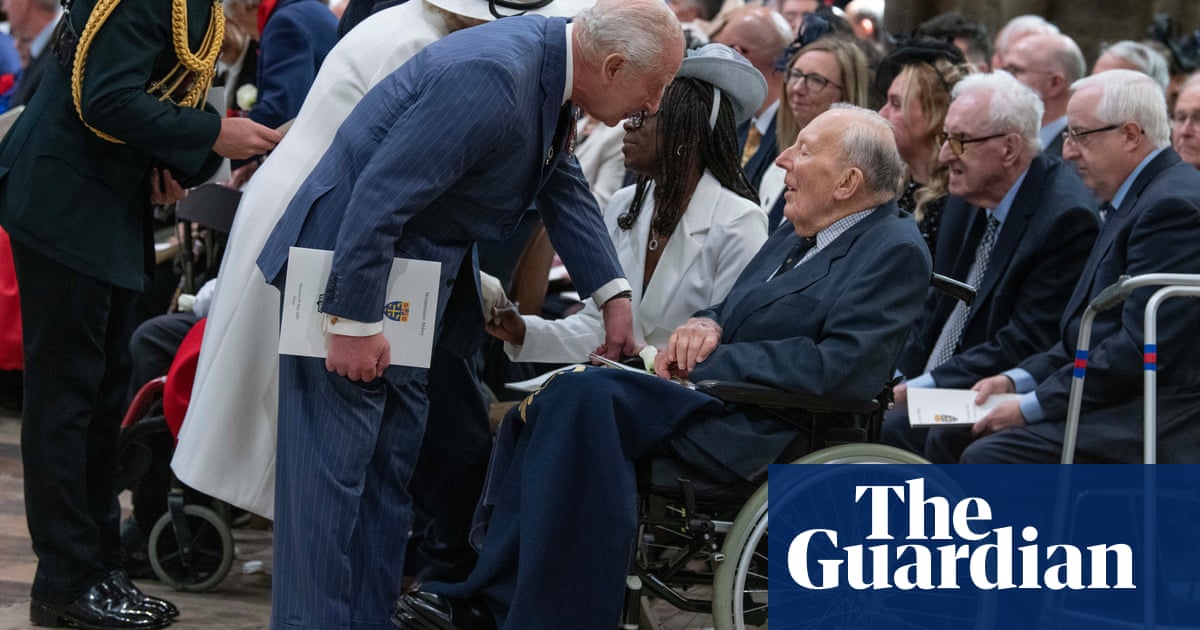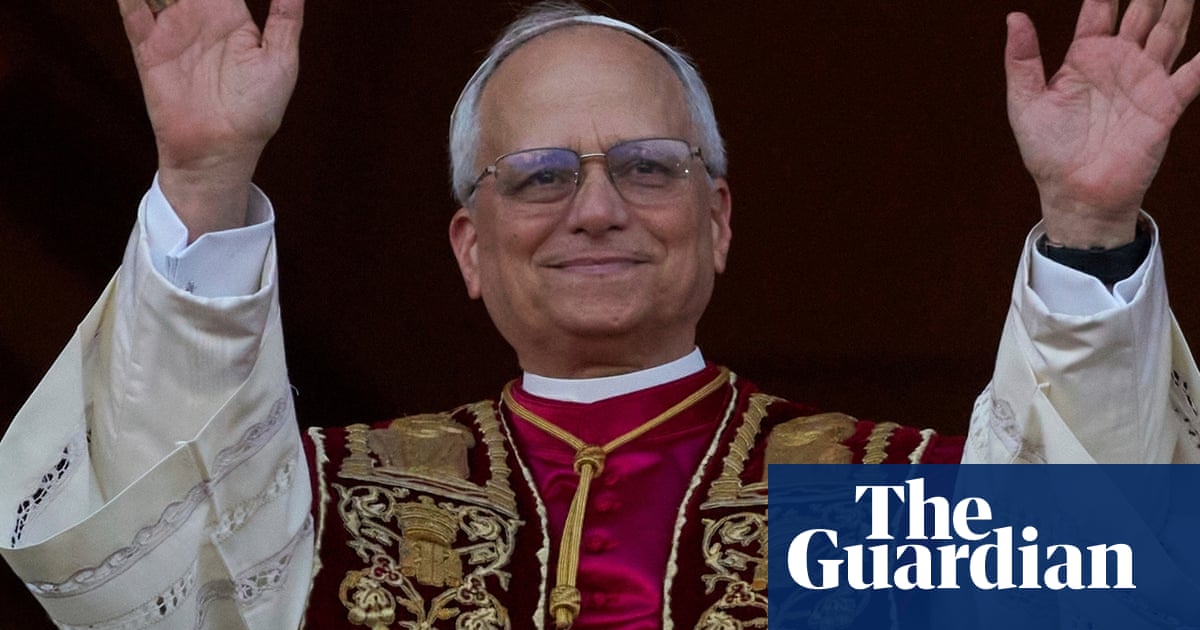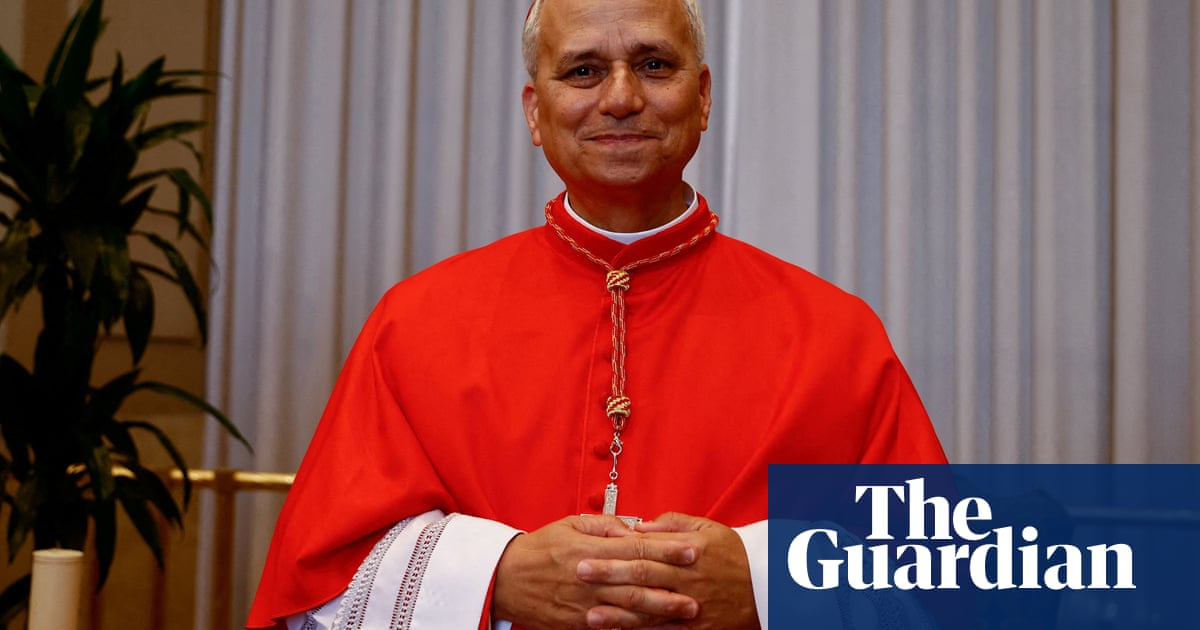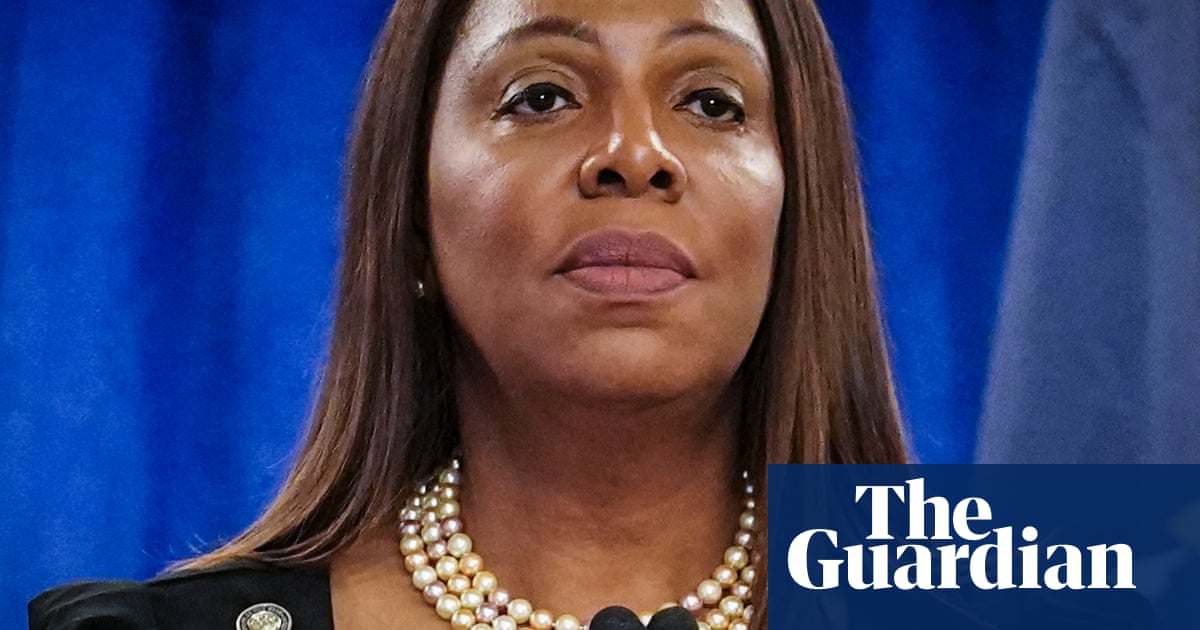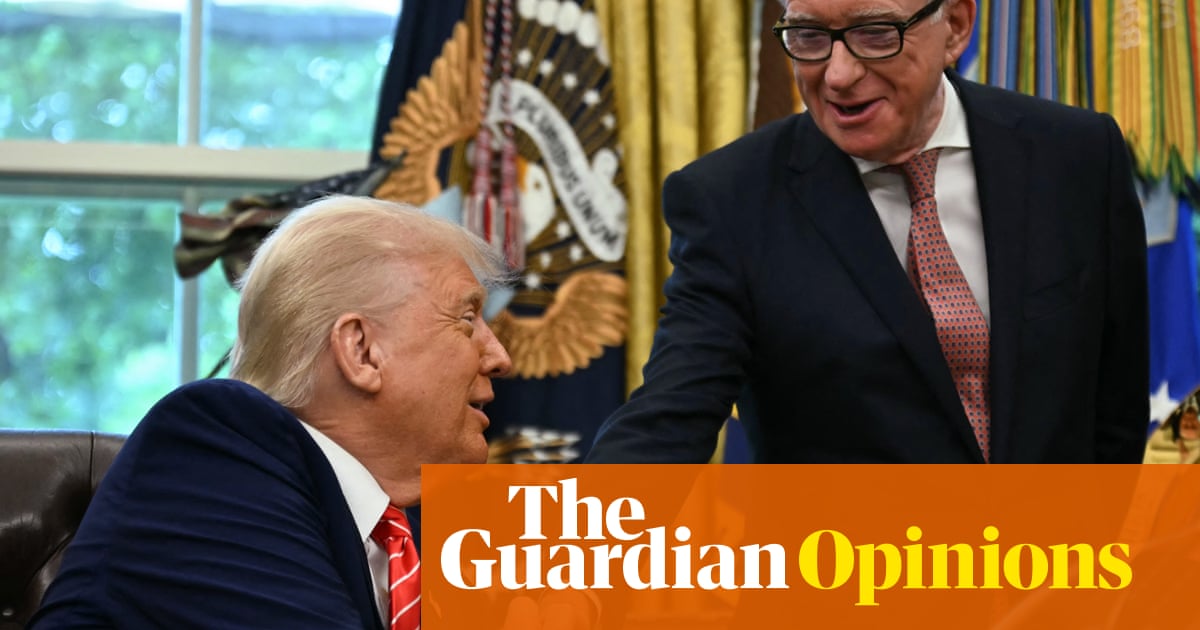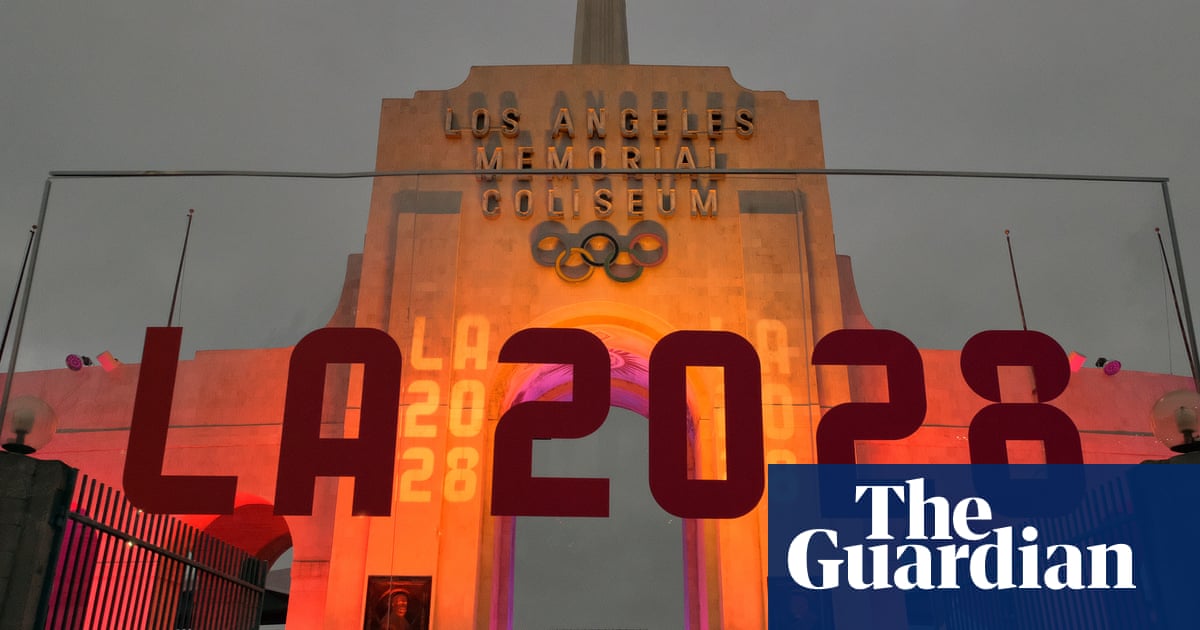To admirers, Biden will remain one of the most consequential one-term presidents in US history – to detractors, he was undone by a fatal flaw

His back straight, his voice steady, Joe Biden stood at the US Capitol just days after a violent insurrection and declared: “Democracy has prevailed.” Fast forward three and a half years and America’s president cut a different, diminished figure. “We finally beat Medicare,” he muttered in confusion in Atlanta, Georgia.
From the soaring hopes of inauguration day to that grim debate night against Donald Trump, the very public decline of the 46th president had the makings of an American tragedy that paved the way for the return of Trump to the White House.
To his admirers, Biden will remain one of the most consequential one-term presidents in US history, having rescued the nation from a pandemic, steered major legislation through a divided Congress and created nearly 17m jobs. But he was assailed by high inflation, illegal immigration and the inexorable march of time.
To his detractors, this was a stubborn octogenarian undone by a fatal flaw: having promised to be a transitional figure, he did not know when to let go. And when he finally did, it was too late.
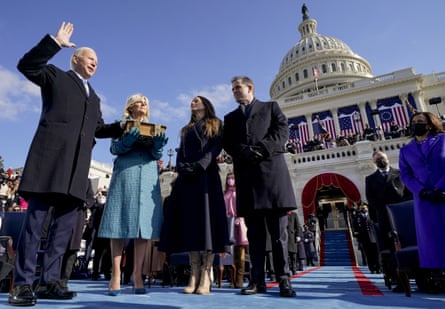
Charlie Sykes, a conservative author and broadcaster, said: “It’s hard to escape the conclusion that, as Biden is leaving office, he’s less transformational figure than historical parenthesis because ultimately he failed to meet the political moment or the essential mission of his presidency. The prime directive of Joe Biden’s presidency was to prevent Donald Trump’s return to power and his failure to do that is likely to be his lasting legacy.”
When Biden departs Washington on Monday at the culmination of a career spanning more than half a century as senator, vice-president and president, the old maxim that all political lives end in failure will hover over him. He will be 82, the oldest president in US history and the first great-grandfather to hold the office. Democrats will long agonise over why his age and fitness for office did not become a political emergency until it was too late.
It is easy to forget now the malaise that Biden inherited. In that inaugural address in January 2021, he spoke of four crises: the coronavirus pandemic, climate, economy and racial justice. Standing on the spot where just two weeks earlier a pro-Trump mob had sought to overturn his election win, Biden also promised to restore the soul of America.
It would be, in many respects, a presidency of two halves. Biden hung a portrait of Franklin Roosevelt above the fireplace in the Oval Office and acted with a scale and speed that delighted progressives and knocked opponents back on their heels.
In March 2021, he launched $1.9tn in pandemic aid, creating a series of new programmes that temporarily halved child poverty, halted evictions, accelerated vaccination rates and contributed millions of jobs.
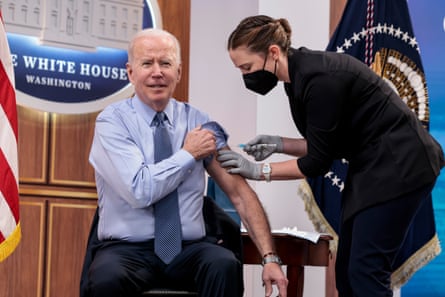
Even then there were warning signs. Inflation ticked up and by June Biden’s approval rating was down from 61% to 39%, according to the AP-Norc Center for Public Affairs Research. In August a botched military withdrawal from Afghanistan, which saw the Taliban march into Kabul and the deaths of 13 US service members, inflicted another blow from which his standing would never recover.
But Biden pressed on and later that year signed a $1.2tn bipartisan infrastructure package that not only replaced ageing roads and bridges but improved internet access and prepared communities to withstand the climate crisis. Then, in 2022, he followed up with two measures that reinvigorated the future of manufacturing.
The Chips and Science Act provided $52bn to build factories and create institutions to make computer chips domestically, ensuring that the US would have access to the most advanced semiconductors needed to power economic growth and maintain national security.
The Inflation Reduction Act aimed to tackle rising prices through measures such as lowering healthcare costs, reforming tax policies to ensure corporations and high earners pay more, and investing in clean energy. It was the most significant climate legislation ever passed.
Biden also signed the first major federal gun control legislation in nearly 30 years, focusing on enhanced background checks for younger buyers and support for states implementing red flag laws.
It was by any measure an impressive legislative legacy but much of it will bear fruit only in years and decades to come.

James Clyburn, a Democratic congressman from South Carolina and close ally of Biden, said: “When people are writing the history books, they don’t write about talk and walk. They write about substantive things and, on substance, I defy anybody to show me an administration that has been more impactful on the general public than Biden has been since, I suspect, Lyndon Johnson.”
While Biden’s critics blamed him for falling short on voting rights and student loan debt, Clyburn noted that it was the supreme court that blocked his efforts. “I don’t think it’s going to take that long for people to see how impactful this president has been in a very positive way.”
Biden had done it all with only narrow majorities in Congress and in age of partisanship and rancour. But he struggled to communicate his successes to the public or reap credit for them.
While Trump continued to dominate the public imagination, Biden’s empathy and ability to connect with voters seemed to desert him. He failed to convey a sense of urgency in handling the southern border with Mexico as illegal border crossings rose and were hyped by rightwing media.
Bill Galston, a senior fellow at the Brookings Institution thinktank in Washington DC, added: “The administration for reasons that I can understand but still regret lost touch with the actual feelings of the people. While the administration was talking about Bidenomics in glowing terms, people were up in arms about the high prices for basics.
“It’s bad politically when you’re seen to be worse than wrong, namely out of touch. In the area of prices and also immigration the administration conveyed the impression of believing its own talking points and being out of touch with experiences that millions of Americans were having. The party paid a big price for that.”

Even so, Biden would defy the odds again in the 2022 midterm elections. But it was that very success that would lead him to overreach. Previous Democratic presidents had suffered what Barack Obama called a “shellacking” in midterms. Despite predictions of a “red wave”, Democrats overperformed, retaining the Senate and only narrowly losing the House of Representatives.
Paul Begala, a former White House counsellor to Bill Clinton, said: “The odd thing is the midterms for Biden were far better than they were for Clinton or Obama. When you lose like they did you recalibrate, you right the ship, voters are telling you something. The voters were not as clear in 2022 in telling Biden to recalibrate.
“Plus Clinton could move to the centre; Obama could move the centre; Biden couldn’t move to being 45 again. He was simply too old in the mind of the overwhelming majority of Americans – the majority of Democrats – and that was existential. It wasn’t practical, it wasn’t political and his failure to confront that and his team’s failure to confront that is going to hurt his legacy.”
The midterm results strengthened Biden’s position and shored up his determination to run for re-election while brushing aside Americans’ fears that he was too old for the job. He had beaten Trump before and insisted he was singularly capable of doing so again.
But some Democrats continued to worry that Biden, flattered by comparisons with giants such as Roosevelt and Johnson, had lost sight of how dangerous the moment was – and how severe the consequences would be of getting it wrong.
Dean Phillips, a Minnesota congressman, announced that he would challenge Biden in the party primary, citing poll numbers and the president’s age as reasons to pass on the torch to a new generation. He told the Washington Post newspaper: “We’re at grave risk of another Trump presidency. I’m doing this to prevent a return of Donald Trump to the White House.”
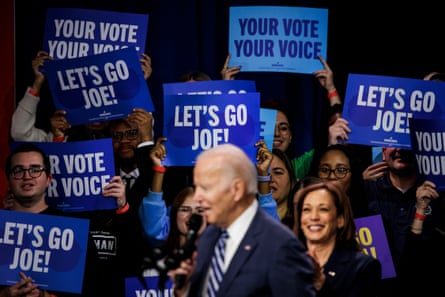
In public, Phillips was ridiculed. In private, others shared his concerns. Larry Sabato, director of the Center for Politics at the University of Virginia, recalled receiving a call from a Democratic senator in late January or early February 2024.
“I said, ‘Is there any particular reason why you called me? I’d like to know.’ He said, ‘You do realise, off the record, that Joe Biden is not going to be our nominee?’ I was stunned. I said, ‘What, how, why?’ He said, ‘I just was at a meeting with him with several other senators and he couldn’t even function. We can’t run him.’”
Sabato added that the senator in question tried to raise the issue, which angered the White House. “He was punished, as several of them were. They gave him the cold shoulder for a while. The point is that a lot of people had figured it out but they didn’t care. I’m stunned that they got away with it and have produced term two for Trump and it’s going to be the longest four years of our life.”
The administration continued to play down concerns about Biden’s age and gave short shrift to any journalist who dared raise it. No source interviewed by the Guardian perceived a deliberate conspiracy but more likely a case of collective wishful thinking in a fast-paced work environment that leaves little room for perspective.
All White House staff prefer a sense of control and tend to be protective of the principal, so it was hardly surprising they limited Biden’s exposure: he gave far fewer press conferences than his predecessors. When he did misspeak, the defence was that he was merely being true to his gaffe-prone self.
Galston, a former policy adviser to Clinton, said: “On the one hand I find it difficult to believe that they didn’t know. On the other hand I find it easy to believe that, in the heat of ferocious political combat, you see what you want to see and you either don’t see what you don’t want to see or you underestimate its impact and its significance.”
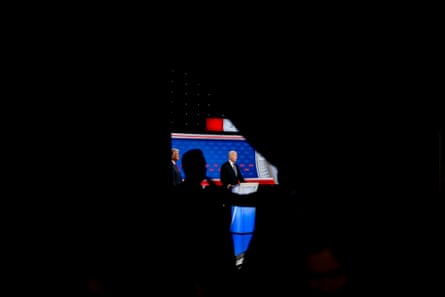
In June, however, the game was up. The first presidential debate took place far earlier than in a typical election cycle. Standing on stage with Trump in Atlanta, Biden looked all his 81 years as he misspoke, struggled to complete sentences and, when it was his opponent’s turn, stared into the middle distance with mouth agape.
Begala commented: “That debate was the worst performance in modern American history, maybe in all American history. I can’t think of anybody as bad. We all talk, oh, Nixon had bad makeup and hadn’t shaved. Biden couldn’t complete a sentence and talked about how we finally beat Medicare.”
Panic swept through the ranks of a Democratic party unified by its shared desire to block Trump’s return. Obama, former speaker Nancy Pelosi and others reportedly let it be known they had lost confidence in Biden’s ability to beat Trump. He resisted the pressure until it became overwhelming.
Biden announced in July that he would not seek re-election and would endorse his vice-president, Kamala Harris, instead. Clyburn, who described the debate performance as a “one-off” caused by “preparation overload”, said: “At the time, I thought he was making the right decision. Looking back now, I don’t think it was the right decision. But you never know about these things until most times it’s too late to find out.”
Seen as a political liability, Biden played little part in Harris’s election campaign and witnessed her crash to defeat in both the electoral college and popular vote. He was forced to welcome Trump, whom he had characterised as an authoritarian and demagogue, back to the White House.
Having once praised Biden his selfless decision to step aside, Democrats now turned on him for not having done so earlier. But Ron Klain, his first White House chief of staff, defends the president and his team. He said via text message: “There was no cover-up. A Democratic congressman ran against him in the primary in 2024, with age as the only issue, and voters overwhelmingly voted for Biden.
“He left the race to accommodate the wishes of party leaders – not because he could not run. We don’t know if he would have beaten Trump or not – he stepped out – but we do know that the replacement candidate did not beat Trump.”
Then Biden abruptly pardoned his son Hunter, sparing him a possible prison sentence for federal felony gun and tax convictions despite past promises not to do so. Allies such as Clyburn insisted it was a reasonable move by a parent to protect his child from likely persecution by the vengeful Trump administration.
But Wendy Schiller, a political scientist at Brown University in Providence, Rhode Island, said: “The Hunter Biden pardon will be the biggest black mark on his presidency because he promised and he gave his word that he wouldn’t do it and then he did it. He was always known, if you liked him or hated him, as someone who kept to his word. And he broke his word.”
Biden came to office steeped in foreign policy but his record was mixed. He rallied western support for Ukraine to prevent Russian domination. He also remained resolutely behind Israel after the 7 October 2023 attack by Hamas, disappointing some Democrats who wanted to see a greater effort to protect Palestinian civilians.
Only a quarter of Americans say Biden was a good or great president, according to the latest poll from the Associated Press-Norc Center for Public Affairs Research. That is lower than the view of the twice-impeached Trump when he left office soon after the deadly January 6 attack on the US Capitol.
Biden had sought to show that Trump was an aberration; instead it is Biden who is a mere interregnum. When he leaves the White House for the last time on Monday, many will rue how a presidency that promised so much shrivelled into anticlimax. The relief they felt when Biden defeated Trump in 2020 will be replaced by piercing dread of a second American carnage.
Sabato said: “Joe Biden reminds me of students I’ve had that I expected to give an A to and I got the final exam in the term paper and I’ve realised the best I can do is B-minus, C-plus. He was so disappointing in the end and he should have known better. The fact that he was running for re-election is just inexcusable.
“If Kamala Harris or any other Democrat had a normal campaign, two years of runway, they would have gotten airborne and could have overtaken Trump’s plane. But she didn’t have the chance and no one would have. Biden has just had his greatest achievement wiped out. He saved us from Donald Trump and now he restored Donald Trump. How do you grade that?”

 3 months ago
51
3 months ago
51




